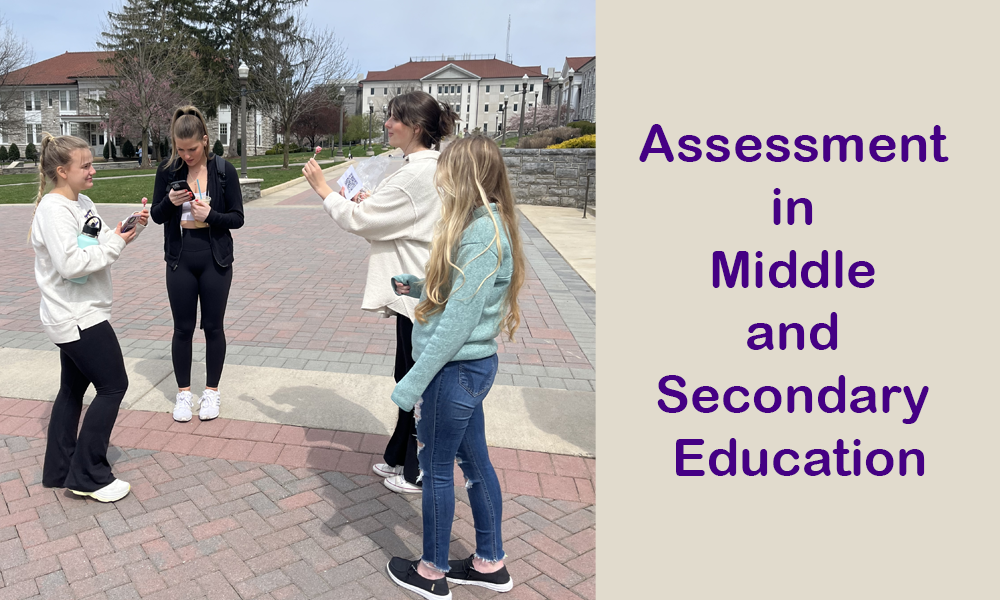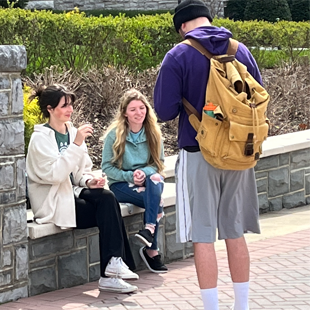Assessment in middle and secondary education
College of Education
SUMMARY: This semester, College of Education’s Dr. Tim Thomas has pioneered a new section of MSSE 425: Assessment in Middle and Secondary Education in collaboration with JMU’s Engineering department to offer a new and exciting way to think about assessment in the secondary classroom.
This semester, College of Education's Dr. Tim Thomas has pioneered a new section of MSSE 425: Assessment in Middle and Secondary Education in collaboration with JMU's Engineering department to offer a new and exciting way to think about assessment in the secondary classroom. The course is split in half: six education students from a variety of educational programs, and six engineering students. The course itself is also interdisciplinary, pulling diverse perspectives from scholars of forestry, historic preservation, and more in addition to education research.
This course was inspired by the United Nations' 17 Sustainable Development Goals. These 17 SDGs were designed and adopted in 2015 in response to international humanitarian and climate crises (United Nations). According to Dr. Thomas, it is not sufficient for pre-service teachers to only have knowledge of the standards they will be teaching; rather, they must strive to build sustainability through collaboration and practical experience in order to understand and combat human impact on the environment.

Students in this section of MSSE 425 will leave the course with a better understanding of assessment and a tool-kit of sustainable skills to take into their future classrooms as this section focuses on locality and utilizing students' existing interactions with nature. According to Dr. Thomas, the class will "[outfit] teachers with the ability to collect quantitative data… and to apply content knowledge to design a unique solution to a local problem." Students will build interdisciplinary skills such as identifying plant life, measuring area, and interviewing local community members in order to make a positive impact on our local Harrisonburg community. From this experience, Dr. Thomas and his colleagues hope that pre-service teachers will be better prepared to arm their future K-12 students with similar skills and ambitions. He says this class will "[bring] us closer to solving the problems that are plaguing the world."
Dr. Thomas reports that students thus far have been engaged with the mission of the course and are looking forward to what they will be able to accomplish by the end of the course. He would also like to say how appreciative he is of the effort of JMU's Engineering Department. If you have any further questions or inquiries regarding the course, please reach out to Dr. Tim Thomas.
